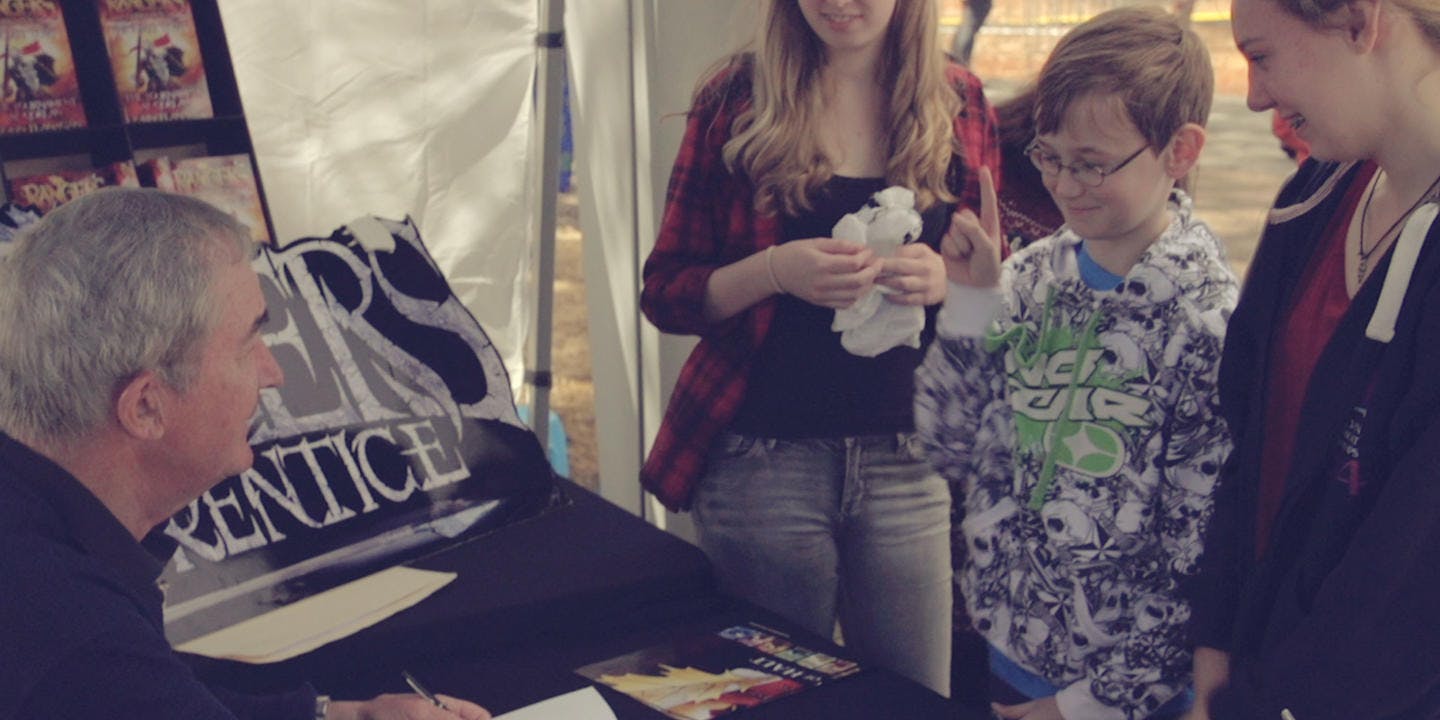Tips for budding writers from the bestselling Ranger’s Apprentice author.
As the author of the New York Times bestselling Ranger’s Apprentice series and the award-winning Brotherband books, it’s fair to say that John Flanagan knows a thing or two (or seven) about how to write a compelling novel. So we thought we’d pick his brain and reveal John’s top tips and tricks of the trade for budding authors. Think of this as your writing apprenticeship with a Halt-like mentor (if Halt traded his bows, arrows and throwing knives for the mighty pen)!
- My best tip is: don’t just get a broad idea for a book and then jump in and try to write it. Plan the story completely (and put the plan down on paper) before you start writing the book. You have to know how it ends before you start writing.
- Once I have an overall plan, I break it down into a chapter-by-chapter outline, listing the main events of each chapter. I keep this beside me as I write the book, adding to it, and sometimes moving ideas around. But basically, it gives me my framework when I start each day. That means writer’s block isn’t really a problem, because I always know what I’m going to write next. It’s a lot of work. You have to love it to do it. I’m lucky. I love doing it.
- Similarly with your characters: get a general idea of them, and then start to become more specific. What has made them the way they are? Did something happen in their past to affect their current behaviour? What are their strengths? What are their weaknesses? And don’t forget that everybody has weaknesses. Even Halt gets seasick, after all.
- Think. Plan. Take notes. Look at people around you. Look for traits that you’d like to see in your own characters. Ask how those traits will affect their behaviour.
- You might even take your main character and write a short story about his (or her) background, his history. Where he came from. What events shaped him. How he reacts to danger, to sorrow, to triumph. You may find that in your main narrative you refer back to significant events in this short back story. All the better if you do.
- But essentially, after you’ve done your groundwork, start writing. And keep writing.
- Chances are, your first attempts at storytelling may not be too good. Mine certainly weren’t. But keep going. The wonderful thing about writing is, the more you do it, the better your writing becomes. Don’t be put off by setbacks along the way. You may have your work rejected. I did. I had seven or eight books rejected before I wrote the Ranger’s Apprentice stories. But keep going. Keep writing. Keep improving.













